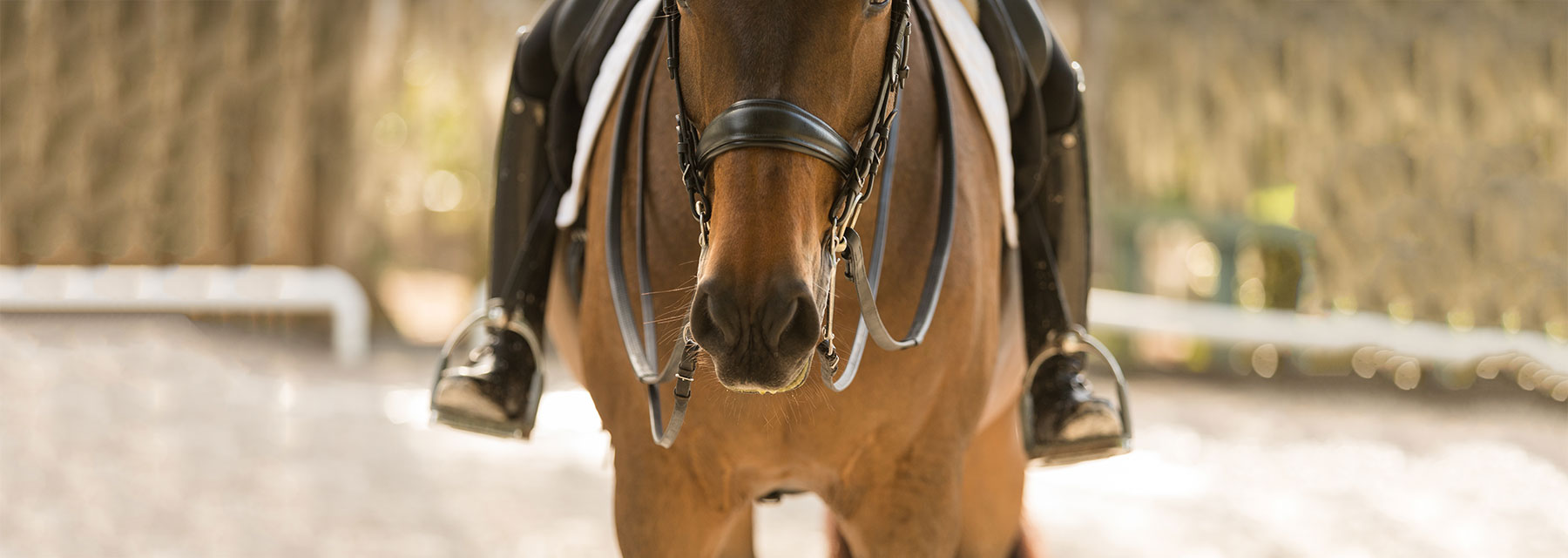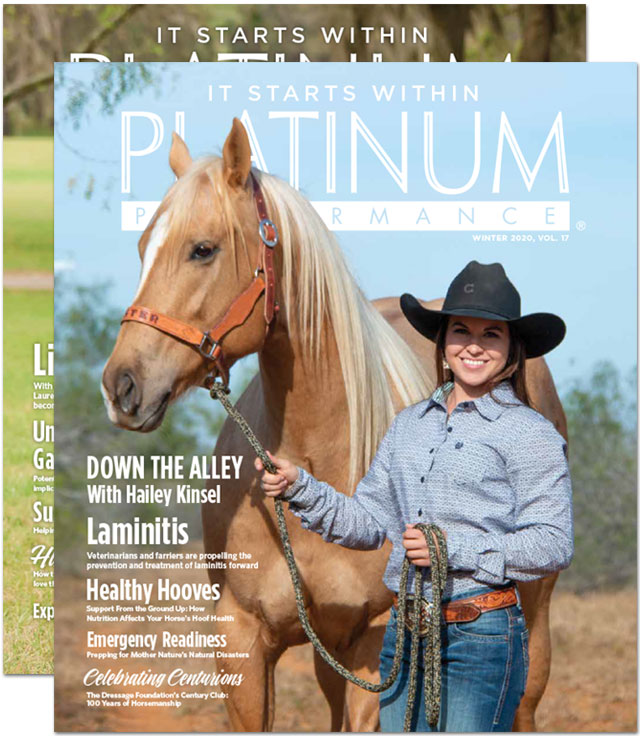Help Your Horse Beat The Heat
Summer is a great time to spend time with your horse. The long, hot days beg to be spent with friends at the barn or in the saddle. Rising temperatures also increase the risk of heat-related stress and health issues for your horse. With a little extra care and awareness, you can help your horse stay healthy in the heat.
1. Water, Water Everywhere
Providing fresh, clean water at all times can go a long way to keeping your horse healthy and hydrated this summer.
- If your horse’s water source is an outside trough, remember to clean it regularly as it can get dirty quickly with algae and bacteria out in the hot sun.
- Check the temperature of available water as well.
- Try to keep water sources shaded or use insulated pipes, so you not only provide fresh, but cool appetizing water as well.
- Hanging buckets will get warm and need to be dumped and refilled regularly.
- Remember that on particularly hot days or after hard exercise, your horse requires more water. Make sure it’s clean, cool and available.
2. Replenish with Electrolytes
All horses should have plain, white salt available at all times.
- In hot weather or with heavy exercise, your horse may require supplemental electrolytes to replace minerals lost through sweat (particularly sodium, chloride, potassium and magnesium) and to encourage drinking.
- Salt should be the first and primary ingredient in an electrolyte supplement and at least 75 percent of the total volume. Check the labels and watch for added sugar.
- For maintenance purposes, an ounce of salt (~2 tablespoons) is an appropriate amount per day to add to a horse’s diet in cool weather and can be doubled in hot, humid conditions.
- Provide access to fresh water after your horse has been given electrolytes. If electrolytes are being offered in water, a fresh water source must be supplied as well.
Normal Equine Vital Signs
Temperature: 99-101.5°F
Respiratory Rate: 10-24 breaths per minute
Heart Rate: 28-44 beats per minute
Mucous Membranes: Gums should be moist and pink
Capillary Refill Time: When a finger is pressed firmly against the horse’s gums, the point of pressure should return to a pink color within 1-2 seconds.
Intestinal Sounds: Gurgling, gas-like growls, tinkling sounds and occasional roars are normal and can even be heard by pressing an ear to the horse’s barrel.
99-101.5°F
NORMAL TEMPERATURE
> 103°F
WARNING SIGN OF HEAT STRESS
3. Sweat, or Lack Thereof
Sweating is the horse’s natural cooling mechanism.
- Horses with anhidrosis are unable to or have difficulty sweating and may struggle in the hot summer months.
- General management options for “non-sweaters” include providing shade and turning out at night, putting fans in stalls, misting or hosing down the horse regularly and full body clipping to help regulate the core body temperature.
- While not the outcome for every anhidrotic horse, some horses respond very well to simple electrolyte supplementation to promote thermoregulation. For horses that may need additional support, supplementation with omega-3 fatty acids and antioxidants combined with specific nutrients, such as arginine and B vitamins (B3, B6, B1) contained in Platinum Refresh®, have been found effective to support normal sweating.
4. Cool Shades
As simple as it sounds, providing horses with shade can be significant to beat the heat.
- Whether it’s a man-made shelter, a run-in option or an area of trees, shady spots can provide a temperature drop of 10 degrees.
- If shaded turnout isn’t an option, consider letting horses out at night when it is cooler and bringing them into the barn during the day.
- If your horse is sensitive or there isn’t a shaded option, avoid having them out during the hottest time of the day, about 2 to 5 o’clock in the afternoon, when the sun is the highest.
- Be aware also of horses that are prone to sunburn. Pink noses, white socks and so on should be covered or sunblock applied to vulnerable areas.
What is Heat Stress?
Horses are more susceptible to heat stress in the summer months. Overheated horses need intervention to be cooled down quickly. Heat stress can lead to heat stroke, which is a medical emergency. Call your veterinarian immediately if heat stroke is suspected or the horse is in distress.
Warning Signs of Heat Stress
- Body temperature > 103°F
- Increased heart rate
- Increased breathing rate
- Profuse sweating
- Droopy ears
- Dehydration
- Tiredness
- Reduced feed intake
IF YOU SUSPECT HEAT STROKE, CONTACT YOUR VETERINARIAN IMMEDIATELY.
5. Itchy Things: Bugs & Skin Allergies
Seasonal allergies pose a major problem in the spring and summer months as pollens and molds produce rapidly and insect populations are high.
- Insect-bite hypersensitivity can seasonally cause itchy dry skin in some horses.
- Management-wise, full fly sheets and special sprays and shampoos are helpful, as well as stall fans to move air and evening turnout when the bugs are least active. Steroids are often effective in treating skin irritation.
- Dietary nutrients like omega-3 fats, quercetin and thymic extract, found in Platinum Skin & Allergy, may be helpful for itchy horses. These ingredients support a normal allergic reaction and help to balance the immune system.
6. Travel & Immunity
Feeding a balanced diet is one of the best ways to support a general, healthy immunity.
- A forage-based feeding program that is balanced with a comprehensive wellness supplement, like Platinum Performance® GI, is a very healthy and simple diet for most horses and is easy to take on the road.
- For horses that travel and may be at risk for viral exposure, increasing immune-supporting nutrients like zinc and lysine is advised.
- Be aware that summer brings higher incidences of Potomac Horse Fever and West Nile Virus. Make sure your horse is up to date on vaccinations before you hit the road.
Typical Water Consumption
The average horse will stop and drink 8 to 20 times each day depending on temperature, humidity and amount of work and exercise. How much a horse drinks depends on age, life stage, exercise level and the ambient temperature. An average-sized mature horse will drink between 5 to 10 gallons per day at a moderate temperature of 68°F. As temperatures increase, the amount of water consumed increases significantly. Water consumption will range between 11 to 15 gallons for the same horse at 86°F, and that same horse exercising moderately in 95°F heat will consume 19 to 24 gallons of water. Sweat losses increase water intake needs by 50 to 200 percent.
In summertime, when water consumption is critical, it’s more important than ever to make sure they’re consuming adequate amounts of water to stay hydrated.
7. Slow Down
Exercise and training sessions may need to be re-evaluated as temperatures rise.
- If possible, consider moving riding times to cooler hours of the day, such as early morning or evening.
- If a horse is worked in the heat of the day, consider either lightening the workload or spreading it out over a couple shorter sessions.
- Walk often, and let your horse return to a normal breathing rate.
- Take plenty of breaks, and offer your horse water every 30 minutes if you’re in the saddle for longer periods of time.
- If your horse hasn’t been in a regular exercise program, don’t work outside of his fitness level. Build up stamina extra slowly in hot and humid conditions.
8. Cool Off
After riding or exercising, take time to properly cool off your horse.
- Walk leisurely until he’s not breathing hard.
- Hose off with cool water and scrape water off to increase evaporative cooling.
- Graze in the shade until your horse is dry and fully cooled off or stand in front of a fan to help bring down the core temperature.
- For daily use, fans are a great way to move air around and keep it moving and circulating through the barn.
To Cool an Overheated Horse Spray the horse’s entire body with cool water. Scrape water off immediately and repeat continuously until the horse is cool. Water can act as an insulator if it is not removed quickly. If untreated, heat stress can quickly become heat stroke, which is a medical emergency. Contact your veterinarian immediately if you suspect heat stroke or if your horse is in distress.
Tricks to Increase Water Consumption
- Salt encourages drinking. If your horse doesn’t seem to be using a salt block, provide loose salt or spray hay with salt water to encourage drinking.
- If electrolytes are offered in water, provide water without electrolytes as well. Offering both options will ensure that nothing deters the horse from drinking.
- Wetting the hay, pellets or other feeds can increase total water consumption and add moisture to the horse’s gut. Many horse feeds can be soaked and served.
- Change water often and keep it clean. Horses prefer cool and clean water. When the days are hot, water gets warm faster, especially in the sun. Changing it frequently will encourage drinking.
9. Trailering
Transport horses during the coolest part of the day, either when it’s dark or early morning.
- Make sure that trailers are well-ventilated with large windows for maximum air-flow and ceiling roof vents to draw in fresh air.
- Horses are constantly balancing themselves in a trailer, which can be tiring.
- Stop to offer water to horses often on long journeys and check how they are doing.
- Find shade to park the trailer, and do not park in direct sun-light with horses loaded.
- Place rubber mats on the trailer floor and bed it down with shavings to minimize heat coming up from the road.
10. Special Needs
Horses that have a variety of health conditions may need a little extra help in the heat.
- Horses that have trouble shedding, especially those with Cushing’s, will likely need a body clipping to be more comfortable.
- Horses with equine asthma tend to have a harder time in humid weather and may need to have exercise minimized and have their breathing monitored more closely.
- Locations that have very hot ground or footing may be more susceptible for cases of heat founder. For susceptible horses, make a cool place that they can lie down and rest.
- Increase the depth of soft bedding and shavings in a stall and offer them a time to be out of the sun.

